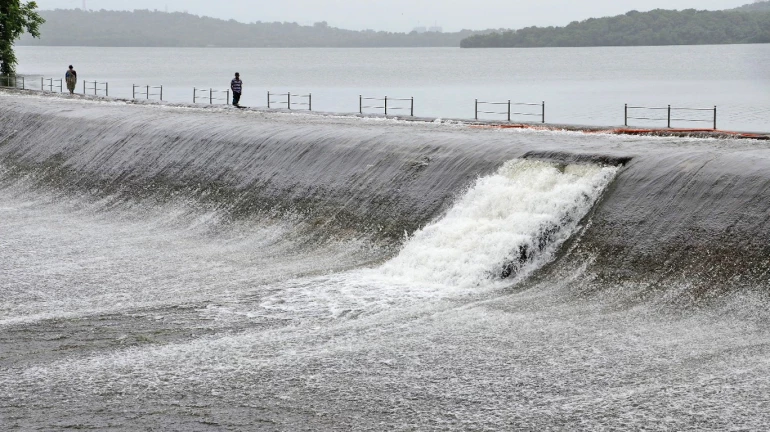
Mumbai’s water reservoirs have witnessed an exceptional rise in storage levels this June, with the total stock across seven lakes soaring to 37% of their full capacity. This figure marks a sharp contrast to the 5.29% recorded on the same date in the previous year.
According to data released by the Brihanmumbai Municipal Corporation (BMC), approximately 5.37 lakh million litres of water have been stored in the lakes so far—nearly 600% higher than last year’s volume. In June 2023, storage had plummeted to just over 1 lakh million litres, resulting in citywide water cuts.
This year’s figures have been described by civic officials as the highest recorded in the month of June in over 20 years. It has been recalled that the last notably high level was seen in 2017, when 3.51 lakh million litres—about 24% of the total capacity—had been registered. Mumbai receives its potable water from seven key lakes: Upper Vaitarna, Modak Sagar, Tansa, Middle Vaitarna, Bhatsa, Vehar, and Tulsi. These lakes, with a combined capacity of 14.47 lakh million litres, are replenished primarily during the monsoon months from June to September. The stored water is then distributed across the city throughout the year.
This year, an unusually early onset of monsoon has been cited as the driving force behind the surge. Extremely heavy rainfall was recorded as early as May 26—marking what has been described as one of the earliest monsoon arrivals in over 75 years. Over 722 mm of rainfall has been documented across the lake catchments this season, significantly higher than the 347 mm recorded during the same period in 2023. Among all lakes, Middle Vaitarna received the highest rainfall at 868 mm, compared to only 260 mm last year.
In light of the improved lake storage, a prior decision to draw water from the state reserve stock has been reversed. A request for 1.81 lakh million litres had been made earlier in March. Although withdrawals from the reserve had commenced on June 16, the process was discontinued by June 19, owing to rising water levels. Meanwhile, Powai lake, which provides non-potable water, has been reported to overflow following intense rainfall—indicating the city’s most promising start to a monsoon season in recent memory.





